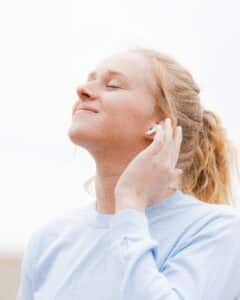[vc_row][vc_column][vc_column_text text_larger=”no”]
Sugary Treats can help People Addicted to Cocaine and Heroin
We’ve all heard that people with substance use disorder – specifically those addicted to cocaine and heroin – default to sugar while in the early stages of recovery. But is sugar a “good thing” in recovery? After all, high sugar intake is known to be responsible for spiking and plummeting glucose levels, decreased immune function, chromium deficiency, aging acceleration and certainly tooth decay, to mention just a few.
In order to fully assess whether sugar in recovery is a good thing or a bad thing, let’s take a look at the physiology of addiction and how we become addicted to substances in the first place.
The “highs”
We’ve all heard about the “highs” associated with alcohol and drug use. Some people experience this high occasionally after, say, a drink or two on a holiday. A nice time with family or friends coupled with an alcoholic beverage relaxes us and makes us feel good. And for most healthy adults, that is where it ends. Most healthy adults can then go about their lives with or without alcohol – there is no daily craving.
But some people experience a craving on a daily basis and desire the substance again and again and again. They crave the drink, the drug, the high. These are the people in danger of a substance use disorder and in danger of becoming addicted.
The Chemistry
Understanding the chemistry surrounding the “high” is important in understanding the recovery process. When an individual consumes alcohol or illicit drugs, “dopamine” is released from the nucleus accumbens part of the brain. The dopamine release is what causes a pleasurable feeling and is referred to as the “high.”
When this “high” occurs (dopamine release), the brain urges the individual to repeat the activity, so the feeling of pleasure is reciprocated. Some individuals can ignore the urge sent by the brain and go about their normal activities, but some people cannot.
Individuals who cannot turn off the urge are in danger of addiction. They are the individuals who continuously chase the good feeling – the dopamine release – the high.
Sugar and Dopamine
There is good news, however. People in recovery can turn to Medication Assisted Treatments, Acupuncture, Psychotherapy or other holistic treatments for relief, healing and a new way of life.
And they can also turn to sugar.
Like cocaine and heroin, SUGAR also stimulates the nucleus accumbens and sets off a release of dopamine. So people who are in recovery often turn to sugar and candies to help satisfy their cravings.
Types of Candies and Sweets
Gummies, like Hot Tomales or Mike and Ikes from Just Born Candies, chocolate, hard candies, cakes, cookies, ice cream, milkshakes, soft drinks and extra-sweetened coffees and lattes have all be used by people in recovery to help attain the “high” once attained by a substance.
Consuming Sugar in Moderation with Other Methodologies
There has been, however, debate surrounding the intake of sugary foods during the recovery process. Is it a “good” thing or not? After all, sugar is the root of other potentially serious health problems.
Dr. Morrow, Chief Medical Officer at Water Gap Wellness Center in East Stroudsburg, says that consuming sugar in moderation, when combined with Medication Assisted Treatment and Professional Psychotherapy can be a beneficial first step in the recovery process.
And once the initial first steps have been taken, true and lasting recovery can begin.
Water Gap Wellness Center is a fully licensed Addiction and Mental Health Treatment facility. The programs at Water Gap Wellness Center have received the Gold Seal of approval by The Joint Commission and are licensed by the Pennsylvania Department of Human Services and the Department of Drug and Alcohol Programs of Pennsylvania, and are led by our Chief Medical Officer, Dr. Robert Morrow who is on site daily. Dr. Morrow is a pioneer and expert in the treatment of mental health and alcohol & substance-related addictions. Housing option offered by Water Gap Wellness Inn.
– written by Annette Kaiser[/vc_column_text][/vc_column][/vc_row]



